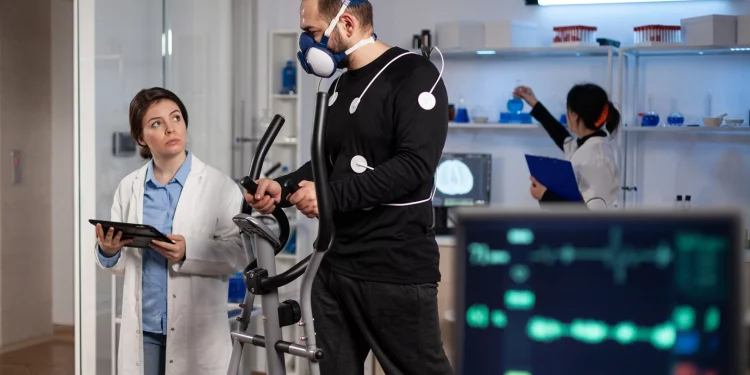As humanity sets its sights on Mars and beyond, the dream of long-term space travel is closer to reality than ever before. However, this monumental leap for mankind does not come without its challenges, particularly regarding the health effects on astronauts. Extended periods in space expose the human body to conditions vastly different from Earth’s, raising concerns about the long-term implications for physical and mental health. Understanding these effects is crucial for the future of space exploration, ensuring that astronauts can safely reach new frontiers and return home healthy.
Physical Health Effects
- Microgravity and Muscle Atrophy: The most immediate effect of space travel is the impact of microgravity on the body. Without the need to fight gravity, muscles, especially those used for posture and movement on Earth, begin to weaken and atrophy. Astronauts must engage in daily exercise routines to combat this, but the long-term effects could still include significant muscle loss and decreased physical strength.
- Bone Density Loss: Microgravity also leads to a decrease in bone density, a condition known as spaceflight osteopenia. Astronauts can lose up to 1-2% of their bone mass per month while in space, increasing the risk of fractures and osteoporosis upon their return to Earth.
- Radiation Exposure: Outside of Earth’s protective magnetosphere, astronauts are exposed to higher levels of cosmic radiation, which can damage DNA and increase the risk of cancer, cardiovascular disease, and other radiation-induced illnesses over time.
- Cardiovascular Changes: Space travel can cause changes in the heart and blood vessels, including alterations in heart shape (becoming more spherical), and a shift in blood volume towards the upper body. These changes can lead to cardiovascular deconditioning, affecting the body’s ability to regulate blood pressure upon return to Earth.
Mental Health Effects
- Isolation and Confinement: Long-term missions, particularly to destinations like Mars, involve extended periods of isolation and confinement. These conditions can lead to psychological stress, affecting mental health and potentially leading to depression, anxiety, and interpersonal conflicts among crew members.
- Sleep Disturbances: The absence of natural light-dark cycles and the artificial environment of a spacecraft can disrupt circadian rhythms, leading to sleep disturbances. Poor sleep can exacerbate mental health issues, impair cognitive function, and reduce overall well-being.
Addressing the Challenges
To mitigate these health effects, space agencies like NASA and private space companies are investing in research and technology development:
- Advanced Exercise Equipment: To combat muscle atrophy and bone density loss, space missions include advanced exercise equipment that simulates resistance exercises, running, and biking in microgravity.
- Radiation Shielding: Developing better shielding materials and protocols to protect astronauts from cosmic radiation is a key research area. Potential solutions include water-based shielding and magnetic field generators to deflect radiation.
- Psychological Support: Providing psychological support through communication with loved ones, virtual reality environments simulating Earth, and strategies for managing stress and conflict are essential for mental health.
- Circadian Rhythm Management: Utilizing artificial lighting systems that mimic the natural light-dark cycle can help regulate circadian rhythms, improving sleep quality and overall health.
The journey into space represents one of humanity’s most ambitious endeavors, but it also poses significant health challenges. By understanding and addressing the effects of long-term space travel on the human body, we can safeguard the health and well-being of astronauts as they explore the final frontier. As research continues to advance, the dream of sustainable human life beyond Earth becomes increasingly attainable, marking the dawn of a new era in space exploration.









